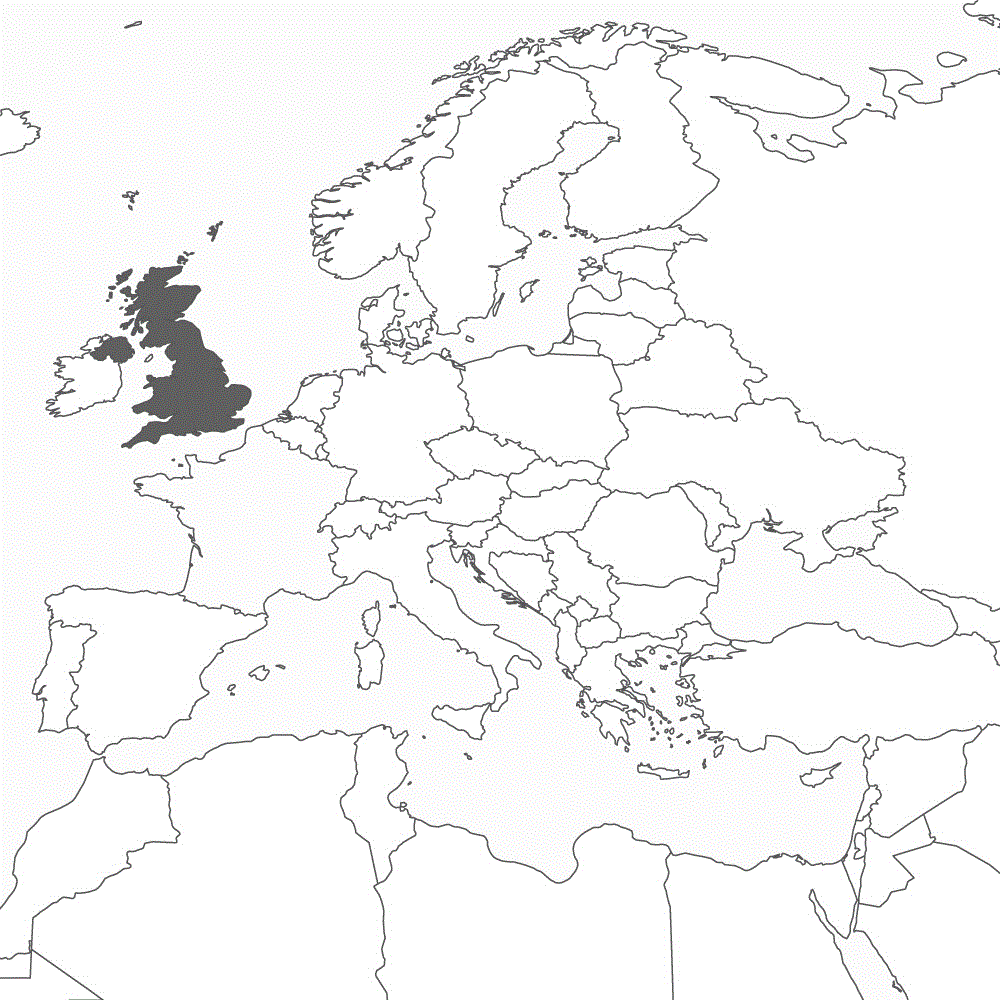Post-Brexit Cooperation
Berlin Needs Great Britain for its Global Policy Plans
LONDON/BERLIN (Own report) - Following the electoral victory of Britain's Conservatives under Prime Minister Boris Johnson, the German government is now urging a continuation of its close cooperation with that country. Foreign Minister Heiko Maas expressed his hopes that the United Kingdom "remains a close partner." Chancellor Angela Merkel is "looking forward to our continued cooperation, for friendship, and a close partnership between our countries." Berlin needs Great Britain's political and military capabilities for implementing Germany's European global policy projects. The British armed forces are still considered to be the most powerful in Europe and London still has considerable influence on global policy. Political and economic examples show that disregarding Britain's interests can push London into direct rivalry to Berlin. This factor is now all the more important, because Brexit provides the United Kingdom economic and political alternatives to cooperation with the EU. Read more
The Global Judges
EU Prepares Global Sanctions Regime
BERLIN/BRUSSELS (Own report) - The EU is preparing a new sanctions regime and wants to impose coercive measures on human rights violators - both presumed and real - throughout the world. It will be equivalent to two US sanctions laws Washington uses to penalize undesirable persons from Russia and other countries. Those listed under the US law can no longer travel to the United States and any assets they may have in the USA would be frozen. During a conflict with Turkey, the Trump administration enforced one of those laws, the "Global Magnitsky Act", to impose sanctions on Turkey's justice and interior ministers. The EU foreign ministers have now instructed the European External Action Service to prepare a corresponding law for the EU, the 'European Magnitsky Act". 'This will be a tangible step reaffirming the EU's global lead on human rights," the EU High Representative for Foreign Affairs Josep Borrell declared. An EU diplomat was quoted saying that the aim is to show that "we have muscles." It is therefore an instrument of power draped in a humanitarian disguise. Read more
The Western Armament Community
SIPRI Documents the West's Leading Role in Global Arms Build-Up
BERLIN (Own report) - The largest arms producers in the USA and Western Europe, including German companies, have further increased their already predominant share of global arms production, as can be seen in the analysis published yesterday by the Stockholm International Peace Research Institute SIPRI. SIPRI analyzed the sales of the world's Top 100 arms-producers and concluded that 83 percent of their output comes from 70 companies headquartered in countries of the self-proclaimed community of western values. Whereas the combined sales of the Top 100 arms companies have increased by 4.6 percent, compared to the preceding year, those of the US and West European companies have increased by around 5.2 percent. Currently the production of military hardware is also massively expanding in Germany. The armaments division of the Düsseldorf-based Rheinmetall Group was able to boost its sales by 11.8 percent in the first nine months of this year. The increase of defense budget is promising business in the billions. German arms exports are also rising dramatically. Read more
Rearmament despite Dissentions
NATO Increases Operational Readiness and Targets China
BERLIN/BRUSSELS (Own report) - In spite of fierce internal conflicts, NATO is enhancing its operational readiness, is preparing its next expansion and is setting its sights on China as a new "challenge." These are the main results of the war alliance's anniversary summit, which ended in London yesterday, with the participation of the heads of states and governments of the member countries. As early as next year, NATO will be able deploy 30 army, air force and naval units in a war within a 30 day maximum. At the London summit, North Macedonia, which is about to join the Alliance, was represented for the first time. In the future, NATO will extensively concern itself with China, however not exclusively confrontational, as Washington would have wanted. The conflict with Turkey did not escalate, even though the dissentions between Ankara and various other allied states, by no means, had been resolved. In fact, the Turkish government has implicitly been given a blank check for its heavily criticized activities in the occupation of Northern Syria. Read more
Video column: Resistance to Berlin
Unrest in Europe because of Germany's expansion of power. Paris warns Berlin and draws closer to Moscow
Soft and obliging, with a friendly smile, yet nevertheless precise and only indirectly threatening, the calls for more power are being sounded in Berlin. The world should hear that the "language of power" encompasses all of Europe, according to the message of German elites and their emissary in Brussels, the EU commission president. They intend to persist in the world with the "language of power." EU Commission President, Ursula von der Leyen: "Europe must also learn the language of power. On the one hand, this means building our own muscles where we've long been relying on others — for example in security policies. That also means applying our existing power in a more targeted way in areas where European interests are concerned." The impression emitted by Brussels, as if it is "Europe," which is urgently pleading for more power and "muscle" – more military – does not conform to reality. The majority of the people do not want more power and more expenditures for arms, but more for social needs. The impression emitted by Brussels does not reflect Europe. It comes from Berlin, like the EU commission president and reflects the ambitions of a very powerful leading economic nation. She is alloying her forces. More power must have violence. Read more
GERMAN-FOREIGN-POLICY.com
Information on German Foreign Policy: News + Interviews + Analyses + Background
